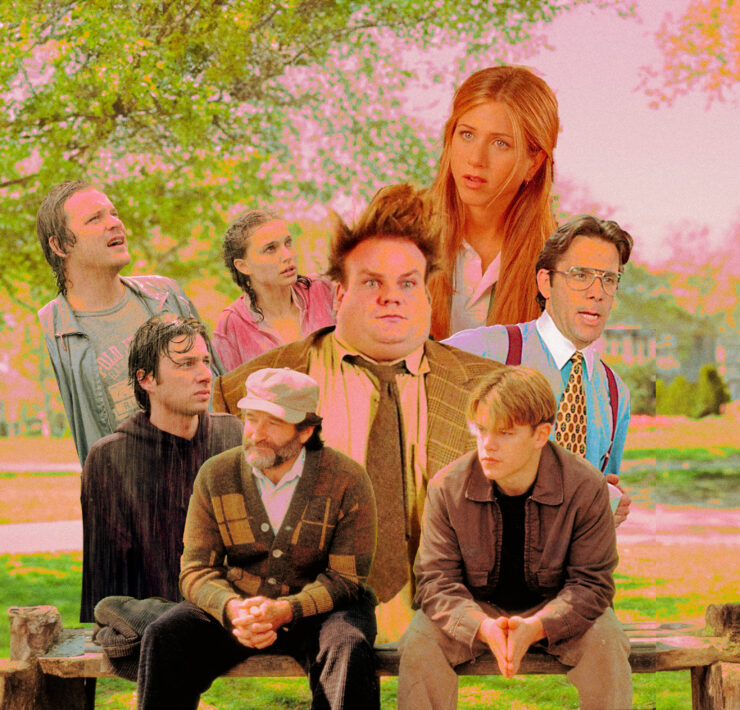
It seems Life Itself was made to make you cry. It’s a jumble of contrived tragedies tied together and rolled under your seat like an improvised bomb of sadness. Some people are drawn to this kind of thing, and that’s fine, but the movie feels like it’s laying a trap for those viewers. There’s nothing real here. With all due respect to writer and director Dan Fogelman, also the creator of a certain beloved NBC drama, this isn’t us at all.
Life Itself is split into five chapters, each one covering a different person on the movie’s tree of intergenerational relationships. We start with one couple, Oscar Isaac and Olivia Wilde, then move forward and back with each chapter to see how their lives affect the lives of their children and their children’s children. Along the way, Life Itself does its best to jerk every last tear out of your eye. It’s not all in good taste, and it starts to become a little painful.
Resisting spoilers for a movie you wish was spoiled for you beforehand (yep), Life Itself manages to touch on everything from suicide to addiction to cancer to classism to sexual abuse to sudden death to pregnancy scares to foster care. There’s probably more. It’s a checklist of sufferings and cruelties, flung down upon the characters from the writer’s chair like a child punishing their dolls and action figures. It’s just relentless, and before long, it numbs you to its provocations.
Fogelman is drawing from the This Is Us playbook here—the intersecting narratives, the generational cross-cutting, the cosmic musings about the power of love—but the beats that work to great effect on TV are for some reason cacophonous and out of rhythm here. You hope a movie with these dramatic aims would bring some subtlety, but Life Itself just chucks grenades. These characters’ lives come off as minefields of sorrow, to the point where one wrong step (literally, sometimes) is the difference between a happy life with someone else and a doomed existence alone.
Indeed, life is brutal, but presenting it as this bleak is a matter of perspective, and by the time Life Itself lines up for an attempt at a hopeful ending, it’s too late. No amount of cancer-ward speechifying can wipe away the pain of the previous two hours’ loss and death.
It’s too bad all the talent involved couldn’t find something more worthwhile to glean from all the dourness. Fogelman has shown he can draw decent wisdom from sadder stories (he also has some filmic winners to his name like Tangled and Crazy Stupid Love), and most of the cast, from Oscar Isaac to Olivia Wilde to Antonio Bandera deliver solid, natural performances. This is a very likeable movie as a poster, but on the screen, it’s hard not to resent it just a bit. It throws too many unmotivated punches.
Take a look at these sad movies: Inside Out, Room and Blue Valentine. The first is about emotions, the second is about family, the third is about marriage. They all follow downward trajectories, but they attracted millions of people because they offered something beyond sadness. If most people go to the movies to escape, they wouldn’t walk willingly into a story that was going to punish them with awful happenings, so what’s the draw? It’s simple: What’s sad isn’t really in the movie. The movie evokes something sad in the viewer.
Inside Out confronts the pain of accessing your emotions. Room confronts the pain of deep-seated guilt. Blue Valentine confronts the pain of resentment. These abstractions are grounded in real things (a difficult move, parenting, a failing marriage), but the sad abstraction isn’t dependent on those real things, so you can hold onto it even if you aren’t married or even if Amy Poehler doesn’t bounce around your head. You understand these movies on a base emotional level, so they don’t really have to say anything out loud.
Great sad movies make you feel sad, strangely, for yourself. Of course, a movie like Boy In the Striped Pajamas or—yeesh—Requiem for a Dream can be so hard to take you’re going to cry no matter what, but when a movie aims at a sad inner truth instead of an external truth, it creates an “oh my gosh, I know what that’s like” feeling that transcends even drug addiction and the Holocaust. You feel for something instead of just about something.
In contrast, a movie like Life Itself feels preachy because it takes the reverse approach. It points at an event like a cancer diagnosis and says, “That’s sad.” We know. But then what? Objective tragedy can only go so far. A movie like this has to find meaning in that event beyond that event’s inherent tragedy. Otherwise, we’re just torturing ourselves.
Ironically, nothing about Life Itself is true to life. It bases its sad happenings in cliches and its central idea, fittingly, in one of the character’s college theses. It’s not much smarter than that. This is the worst This Is Us episode ever. You might cry anyway, but really, there’s nothing worth watching through your tears.






















